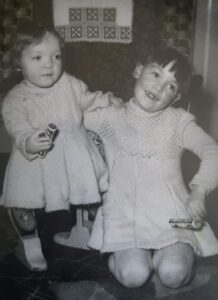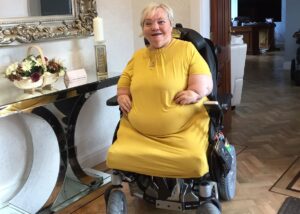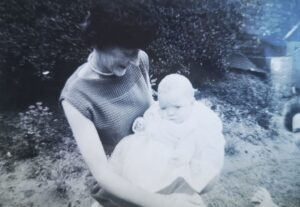By Andrew Brown Stand Up For Southport
A campaigning Southport woman is determined to see the creation of a national memorial in Liverpool for the hundreds of families whose lives were devastated by the Thalidomide scandal.
Teresa Smith, who was born in Liverpool on 12 October 1960 with short arms and no legs due to her mother being given the controversial drug during pregnancy, has recalled how she was lucky to survive thanks to the quick-thinking actions of her Godmother.
Many other babies tragically died.
Six decades on, Teresa wants people to hear her voice as she calls for a long-overdue national memorial to be dedicated to all those affected.
In the wake of other recent scandals, such as the blood infection scandal, she believes it’s vital that the world recognises what happened and never forgets.
Thalidomide, a drug introduced in the late 1960s as a seemingly miraculous treatment for morning sickness, quickly turned into one of the most harrowing medical tragedies of the 20th century.

By the 1960s, the devastating side effects of Thalidomide became alarmingly apparent: thousands of babies were born with severe deformities.
Many of these infants were not given the chance to live, left to perish in hospitals or placed on windowsills without the dignity of a burial.
The BBC program Call the Midwife poignantly highlighted the plight of these children, showcasing the grim reality that many faced.
Stories of the time tell of babies left to die in sluices or abandoned without proper care.
Teresa said: “My own godmother, a nurse, recounted to me how she saved my life. Given only minutes to live, she rushed me to an older hospital, risking her job because waiting for an ambulance would have been fatal.

“Her brave actions and professional standing convinced the reluctant hospital staff to admit me, making the difference between life and death.
“Today, nearly six decades later, the horrors of the Thalidomide tragedy are resurfacing with the discovery of a mass grave of babies in Manchester, prompting a local councillor to advocate for a memorial.
“While Belfast, Wales, and Leeds have started recognizing these innocent lives with memorials, Liverpool – with its significant role in the distribution of Thalidomide – lacks a dedicated memorial.
“The drug company Distillers, which distributed Thalidomide, strategically sold the drug in poorer areas, maximising sales but also disproportionately affecting communities with fewer resources.

“While Australia, with around 45 survivors, has established a national memorial, the UK, with about 400 survivors, still grapples with the need for broader recognition.
“This issue runs deeper than just Thalidomide. The recent discovery of the mass graves and other scandals, such as those involving contaminated blood products, highlight that our society has a recurring pattern of such tragedies.
“The call for action is clear: mere apologies from the government are insufficient. These events, though historic, have long-lasting impacts that need to be officially acknowledged and remembered.
“We need more than words; we need dedicated action.

“Establishing national and local memorials, particularly in Liverpool, will help ensure that the suffering of these innocent lives is never forgotten.
“It’s crucial that these victims are honoured and their stories are told, serving as a sombre reminder and a symbol of accountability and change.
“Let’s not sideline their importance.
“They matter, and so does the pursuit of ensuring such tragedies never happen again.”
Teresa was born in what was classed as the Sunshine Houses in Bedford Road in Walton in Liverpool.
Her father was called Joseph and he was from Kirkdale in Liverpool and her mother, Teresa, was from OMeath in County Louth in Ireland. She grew up with her big sister Annette who is 16 months older.
The total number of people affected by Thalidomide use during pregnancy is estimated at 10,000, of whom about 40% died around the time of birth.

Teresa said: “I have given many lectures regarding disability to the community both here and abroad.
“There is one more task I would like to complete in Liverpool and that is to have a memorial for all the Thalidomide babies who didn’t survive.
“For the past four years I have championed the need for this memorial yet my appeals to local and national councils have gone unanswered.
“This project requires a leader with the authority and commitment to work alongside me to make it a reality and step forward to support this important cause.
“A memorial of this significance should not be left neglected.
“I strongly urge the city council leadership to assign this project to the most suitable committee without further delay.
“This initiative deserves to be prioritised and managed by those capable of realising its potential.”
Do you have a story for Stand Up For Southport? Please message Andrew Brown via Facebook here or email me at: mediaandrewbrownn@gmail.com






